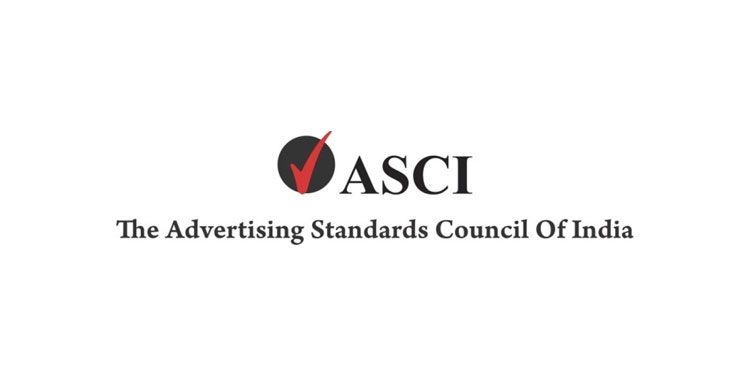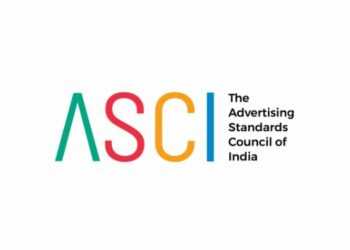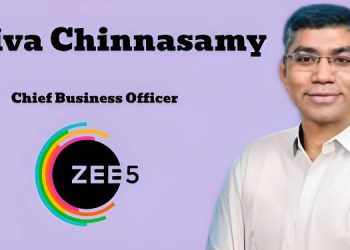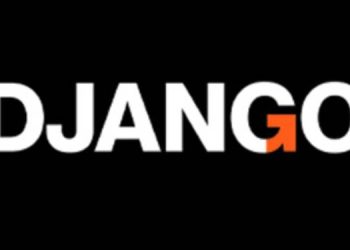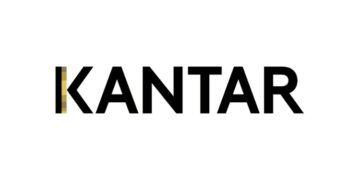Mumbai: During the months of August and September 2019, ASCI investigated complaints against 564 advertisements, of which 179 advertisements were promptly withdrawn by the advertisers on receipt of communication from ASCI. The independent Consumer Complaints Council (CCC) of ASCI evaluated 385 advertisements, of which complaints against 344 advertisements were upheld. Of these 344 advertisements, 259belonged to the education sector, 50 belonged to the healthcare sector, eightto personal care, eight to the food & beverages sector, and 19were from the ‘others’ category.
There were several prominent brands in the Food and Beverage sector making comparative claims regarding the product composition, taste preferences, health benefits or market leadership. Many of the claims were not adequately substantiated. The CCC also considered the comparisons to be unfairly denigrating the entire category in which the advertiser brands were competing in. A leading dairy brand presented their butter cookies to be superior due to presence of 25% butter and 0% vegetable oil. However they made a sweeping statement that “other” butter cookies contain only 0.3% to 3% butter and 20% to 22% Vegetable Oil without presenting any verifiable evidence. Another snack brand, endorsed by a prominent cricket celebrity claimed that up to 60% of people said that their baked snack was tastier than other fried snack brands. However, this claim was not conclusively proven. The same celebrity also endorsed a leadership claim for a food supplement brand “No. 1Supplement for Men”. As this ranking was achieved in the UK and not in India, the claim was considered to be misleading. Advertisement by an edible oil brand implied that consumers should switch from their current heart oil to their product as it takes “Complete care of their heart”. Their claim stating that consumer’s current heart oil cannot fight against heart problemswas considered to be disparaging as well as it seemed likely to scare the consumer into buying the product .
ASCI continues to receive consumer complaints regarding misleading advertisements in the Food and Beverages sector. One complaint was against a brand positioned to be for diabetics and pre-diabetics. The CCC opined that even though the product contained low GI sugar, it still was sugar and should not have been positioned “diabetes friendly” as it was likely to do more harm. A popular instant noodle brand did not mention in their communication if the noodles were fried or not, as required by FSSAI. One of India’s oldest biscuit manufacturers claimed “33% extra” on their product packaging, without mentioning the basis of comparison alongside the offer claim.

Mr. Rohit Gupta, Chairman, ASCI said “Recently as per media reports, Food Safety and Standards Authority of India (FSSAI) issued a statement that that the advertisers must desist from making misleading claims and that the food companies could be liable to pay a fine of up to INR 10 lakhs. Consequences of misleading advertising are grave, not only for the public but also for advertisers as it damages their reputation and breaks consumers’ trust in their products. ASCI encourages advertisers to follow the ASCI Code for self-regulation in advertising and Guidelines for Food and Beverages sector in particular so that all stakeholder interests are taken care of.”
The following are some of the Ad Campaigns from prominent brand that were pulled up by ASCI:
- Dabur India Ltd (Odomos Fabric Roll- on): The product packaging claim, “Just four Dots on Your Clothes, Mosquitoes Won’t Come Close” when seen in conjunction with the visual of the girl surrounded by a blue bubble with no mosquitoes inside and several outside, giving an impression of 100% protection was inadequately substantiated. The product provides only a moderate degree of repellency(4% to 40%, which is less than half). On the claim of safety of product, the CCC observed that the advertiser did not provide any test report of safety for the product when in proximity to human skin.
- ITC Limited (Fiama Scents Bodywash): The print advertisement’s claim, “with just a simple touch anytime, anywhere”, was inadequately substantiated and is misleading by ambiguity. The test data provided, was not adequate to conclusively prove that a forearm lab test on a small number of panel members can be extrapolated to a “real life” bathing, towel drying and post bathing situation to adequately substantiate “capsule deposition all over the body and (fragrance capsules) bursting on touch over a period of 8 hours on dry skin”.
- Parle Products Limited (Parle Happy Happy Biscuits):The back panel of product pack claims “Net Weight: 60g + 20g* Extra = 80g with MRP Rs.10.00”, and front panel of pack claims “33%* extra”. Though offer claim of “33% extra” on 60g pack was not considered objectionable, its presentation on pack was misleading by omission as it does not mention the basis of comparison alongside the offer claim, in font size equal to or more than 25% of the font size of “33% extra” claim. The advertisement also violates ASCI Guidelines for Disclaimers which states that for comparative claim, the basis of comparison must be stated in a font size that is at least 25% of the size of the claim, which is being qualified and positioned immediately next to or immediately below the claim
- Nestle India Ltd: Maggi Nutrilicious New Masala Oats and Maggi Nutrilicious New Masala Veg Atta: The advertisement did not clearly indicate whether the noodles are “Fried” or “Non-Fried”. This was considered to be a violation of FSSAI Regulation, 2011 which states that “instant noodle product shall be presented as ‘Fried Noodles or Non-Fried Noodles’. The informationneeds to be “presented” as required by the FSSAI within theadvertisement – regardless of where it appears (i.e. on pack, digital advertisement, YouTube advertisement).
- Guiltfree Industries Limited (Too Yumm Karare): The television advertisement’s claim, “Preferred by up to 60% snack lovers” and Voice over claim – “Inki tarah upto 60% logon ne kaha hai ki Too Yumm baked Karare is tastier than your fried snack”, were not substantiated and are misleading by exaggeration and implication. The CCC observed that the disclaimer refers to the Nielsen study “Company claim based on independent research conducted by Nielsen, between 5th to 12th October 2018, with a sample size of 423, among males and females aged between 20 to 35 years belonging to NCCS AB households and consumes various brands of stick format salty packaged snacks regularly (at least once in 2 weeks)………”. However, the advertiser did not furnish the details of the design and the findings of this study.The CCC was of the opinion that while hyped up advertising may be permissible, it cannot transgress the grey areas of permissible assertions, and if it does so, the advertiser must have some reasonable factual basis for the assertion made. The claim qualifier “Upto” was also considered to be misleading by ambiguity. The claim unfairly denigrated other snacks brands directly regarding their “taste” in the snacks category. The disclaimers in the TVC were not legible and not in the same language as the audio of the TVC (Hindi). The hold duration of the disclaimers werealso not in compliance with the ASCI Guidelines for Disclaimers.
- MakeMyTrip IndiaPvt. Ltd: The YouTube advertisement featuring Bollywood celebrities Alia Bhatt and Ranveer Singh that claimed“60 Minutes Resolution Else Free Stay” was misleading by ambiguity, omission and implication. The advertisement categorically states that “MakeMyTrip provides 24X7 Hotline and resolution in 60 minutes for any problem for hotel booking….” It makes a blanket claim of “hotel” implying any / all hotel and does not specify on “MMT Assured Hotels only”. The advertiser did not provide any evidence showing that the celebrities had done due diligence prior to the endorsement, henceviolatingASCI’s Guidelines for Celebrities in Advertising as well.
- com (Amazon.in):The website advertisement claim of Ajanta wall clock being sold at the discounted price of Rs.149, when the actual MRP of the product is INR 499 (70% off), is false, distorts facts and is misleading.The website advertisement was promoting `Deal of the Day’ offers on various products of which one of the product was an `Ajanta’ wall clock.However, the actual price at which this was being sold was above INR 400 and not for Rs 149. The claim offer was qualified to mention that “Restrictions apply”. However, the advertiser did not provide the details of restrictions (rules about limits) applicable for the offer. The website also did not make reference to terms and conditions that consumers might peruse before availing the said offer, nor was any evidence provided of any of their consumers having availed the offer.
- One 97 Communications Limited (PayTM): The PayTM applicationadvertisement claim “Free Movie Tickets Worth Rs.1200 on PayTM” is misleading by ambiguity and omission of the offer being over a period of 12 months and violated ASCI Guidelines for Disclaimers. The advertiser’s application did not make any reference by way of (*) / (T&C Apply) to terms and conditions that consumers might peruse before availing the said offer. The details of the offer were made available only once the membership was purchased. The advertisement contravened ASCI Guidelines for Disclaimers.
- Grofers India Private Limited (Grand Orange Bag Days): The website advertisement’s claim “Flat 100% CashbackUp to Rs.5000/-”was qualified with T&C; However, the disclaimer was not prominent in the advertisementnor did it correspond to any asterisk. The advertisement contravened ASCI Guidelines for Disclaimers.
- Naaptol Online Shopping Private Limited (Get in shape Fitness Belt and Pant): The advertisement’s claim as translated from Hindi “Reduces 5 Kgs in one month” was not substantiated as the advertiser failed to provide product brochures, details of the product’s effectiveness for weight reduction by removal of unwanted flab from the body, and weight loss data based on rigorous trial to prove results of five kgs weight loss in one month.
- PhonePe Private Limited (PhonePe): The television advertisement’s claim, “Pay with PhonePe QR Code at any store and win up to Rs.1000/- cashback”, were inadequately substantiated. Advertiser did not submit verifiable data of customers who had benefitted by the said offer, nor with any independent audit or verification certificate. The claim is misleading by exaggeration. Additionally, there was no generic data provided regarding what percentage of scratch cards represented Rs 1000 cash back offer.
- Johnson & Johnson Private Limited (Stayfree Secure): The print advertisement’s claim,“Absorbs 2X Faster” was misleading. The test report shows that the2x claim is established for the test fluid as compared to the advertiser’s old product.The TVC violated ASCI’s Guidelines for Disclaimers as well; the basis of comparison should not be stated/addressed as a footnote but be present in the claim itself or in font size at least 25% of the size of the claim and positioned immediately next to or immediately below the claim.

